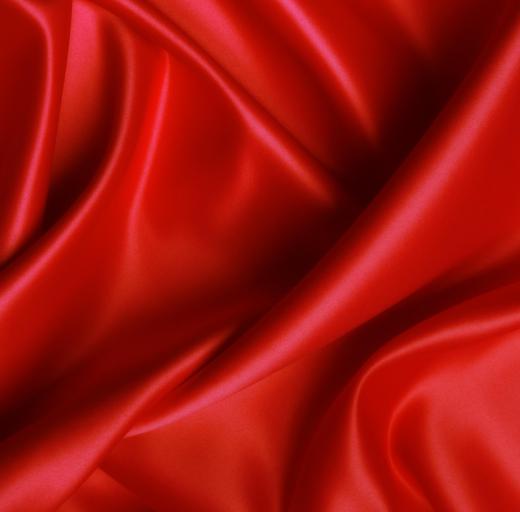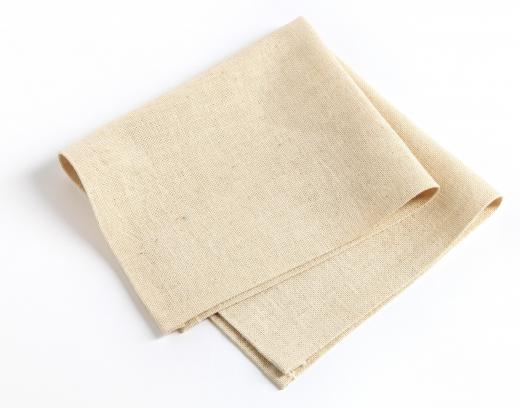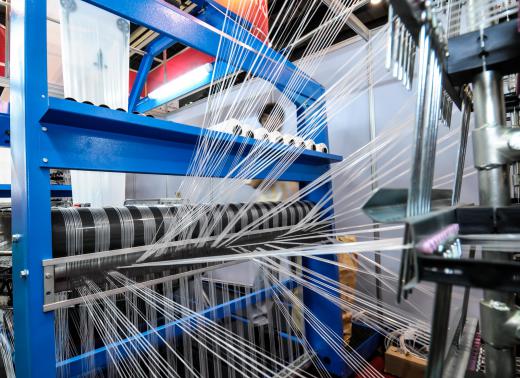Textiles are fabrics or cloth made by a variety of methods including braiding, felting, knitting, netting, and weaving. A textile machine is a device with moving parts that contributes in some way to the manufacture of textiles. This type of machine would be involved in the processes of dyeing, printing, twisting, fiber processing, fabric handling, yarn handling, sewing, weaving, or knitting, for example.
The types of textile machine used for dyeing include an agitation tank, a large insulated vat that is used with a mixer, an air pump, and a heating coil or a dye beck, another type of vat assembly in which cloth is dyed. Other textile machines used in dyeing include the rapid oscillating dyeing machine, the dyeing oven, computerized high temp jet dyeing machines, and rope dyeing machines. For drying, there are steam dryers, drum dryers, conveyor dryers, tumble dryers. For printing, the types of textile machine that are used include a rotary screen printing machine, a heat transfer printer, or a transfer printing calendar.

Weaving is the process by which thread is interlaced to make cloth. The two directions of thread are known as the warp and the weft. Weaving is done on the types of textile machine referred to as looms. These include air-jet looms and water-jet looms, in which the force of the air or the water is used to insert the weft. Specialized looms include circular weaving looms and narrow fabric looms.

Knitting is another method, besides weaving, of making strands into cloth. In textile manufacturing, knitting machines of various kinds are used to make knitted, as opposed to woven, fabrics. These include the single Jersey knit machine, the spandex rib knit machine, and tricot knitters. Also used are flat bed knitters and circular knitters of various diameters, for example, 3.5 inches (8.89 cm) and 6 inches (15.24 cm).

For creating special fabric effects there are different types of textile machine that might create embossing, for example. Other machines are used for mercerizing, sanding, or knit napping, For preparing fabric, there are machines that bleach, shrink, and wash fabric. For yard, there are winders, yarn conditioners, and skein expanders.

